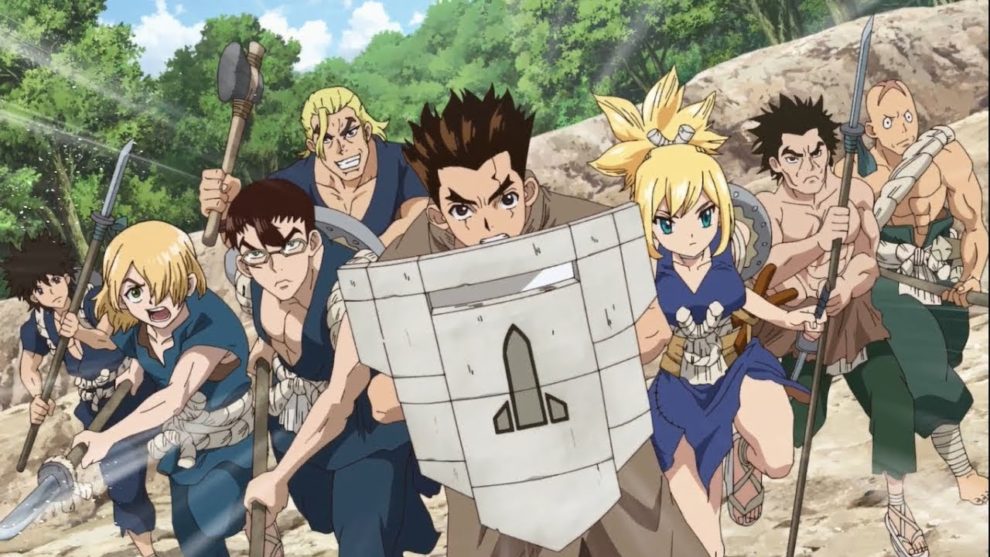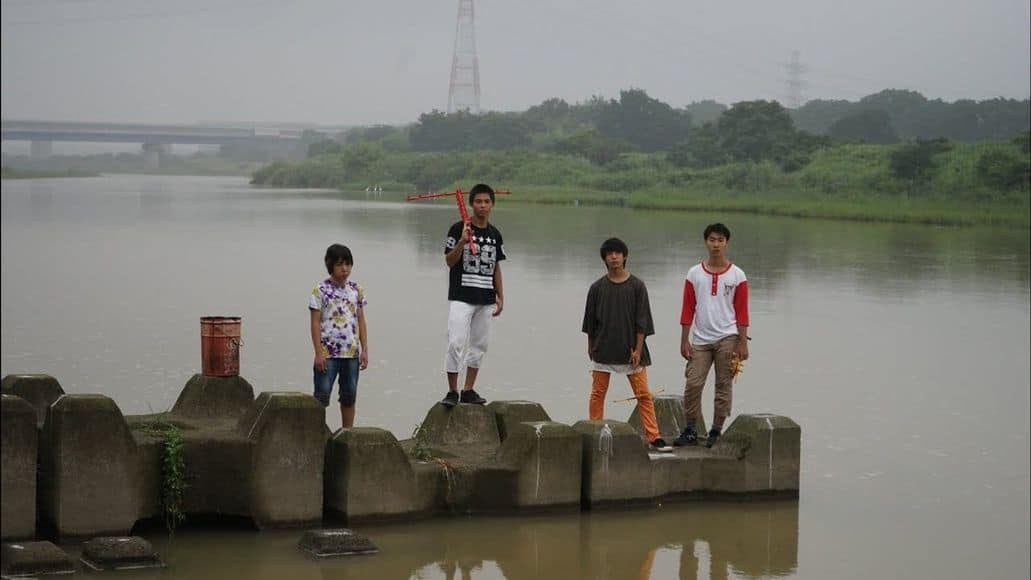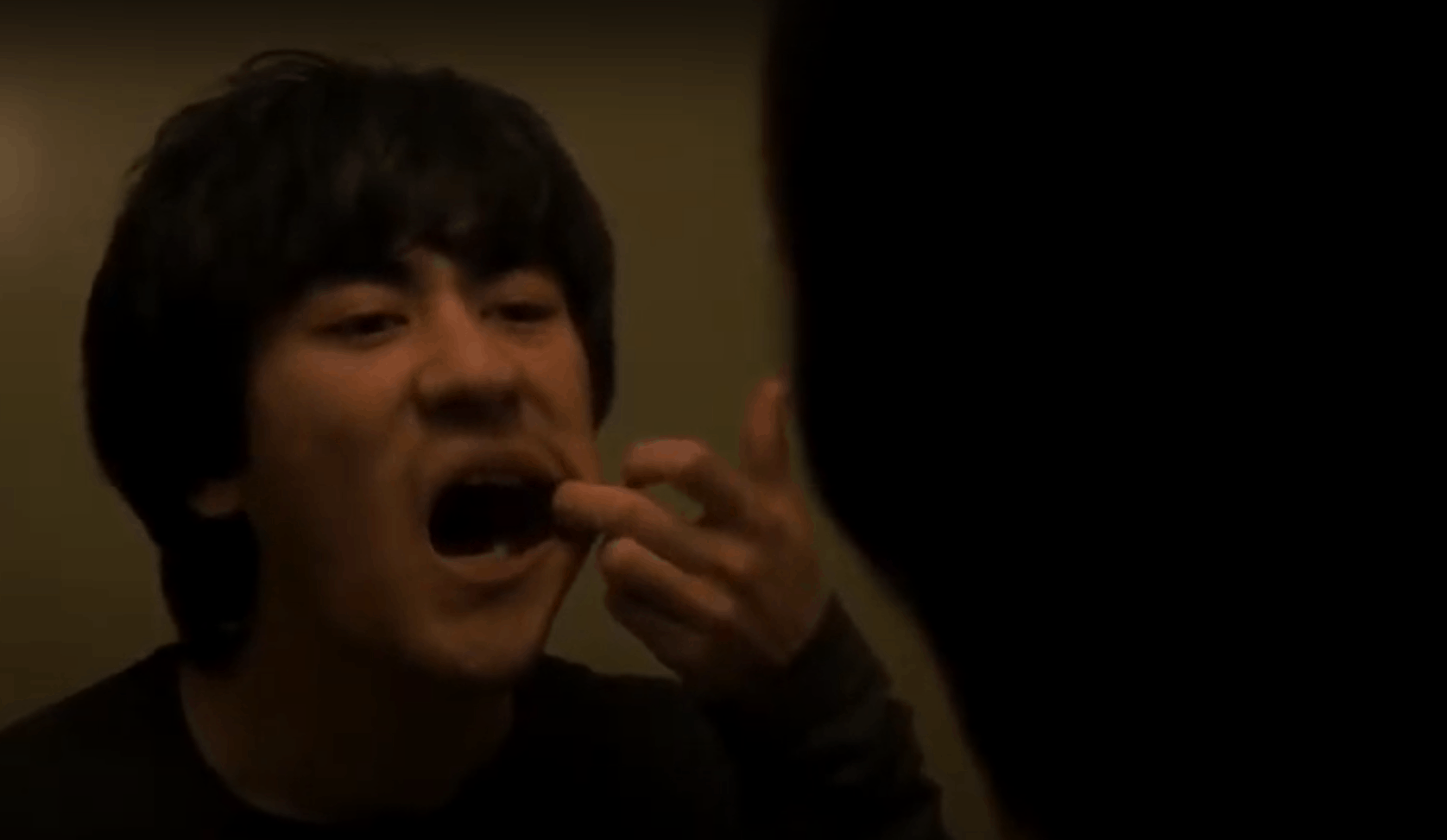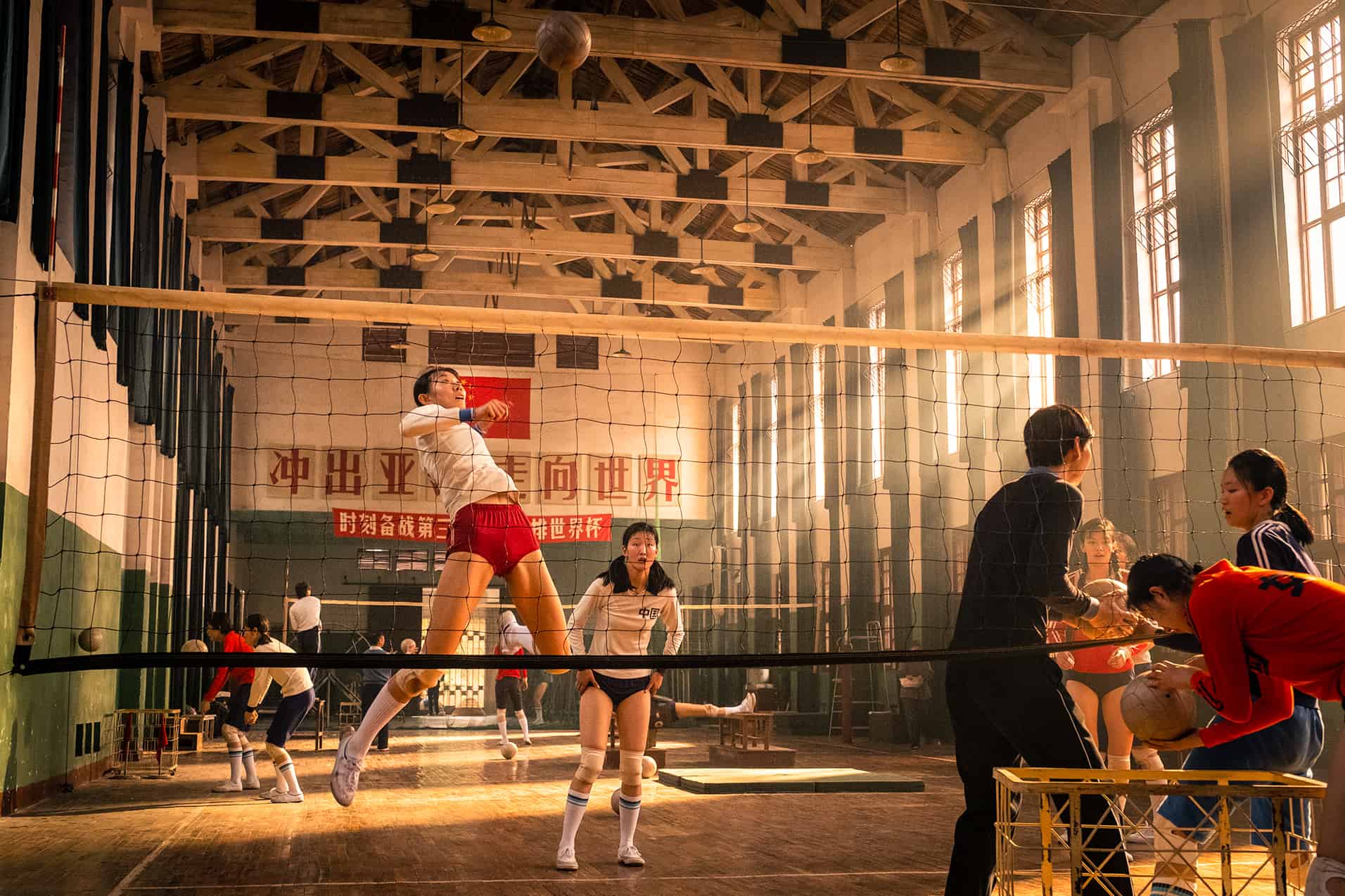After a highly successful first season, “Dr Stone” continues by adapting the “Stone Wars” arc from the main series, with the same aesthetics, but a few crucial changes in terms of narrative.
Watch This Title
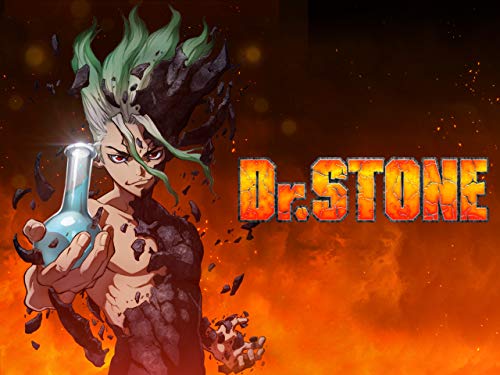
The story continues with the preparation of the Kingdom of Science for the war against the Tsukasa Empire, with the concept of science against force being once more in the spotlight, as much as the ways Senku comes up with scientific inventions of the highest level during the stone age the story takes place in. This aspect is also the main source of the educational purpose of the title, which seems to be even more intense than the first season, since the procedures and the final products are presented in a way that can only be described as teaching. In that fashion, Senku manages to produce space food, a vehicle that moves on steam, flares, and even establishes a method of remote communication, which eventually helps him cooperate with Taiji and Yuzuriha, who are spying on his behalf in the Tsukasa Empire.
However, the most interesting aspects of the season, contextually at least, come in the ways Shinya Iino presents the concept of the pop idol and its impact, but more importantly, propaganda, which becomes a chief element eventually, particularly after it is combined with the aforementioned concept. The ways Senku and Gen implement it is impressive, in a way that would even make Goebbels jealous (I am exaggerating btw), providing in that fashion, even more depth to the narrative.

Expectedly, the action takes over after a point, with the brute force of Tsukasa and Hyoga providing a worthy match for Senku's inventions and his efforts to mislead. The outcome however, is quite unexpected, as treacheries and switching of sides end up with many of the protagonists changing their alliances and the ways they perceive this new era. In that regard, the plethora of fights emerge as more violent than those of the first season, and, essentially, more impressive, particularly due to their impact on the overall story.
Lastly, the exploration of the past and present of some new characters, and particularly the ways they change through their interactions with Senku, are equally intriguing, with Chrome, Tsukasa, and Ukyo standing particularly out. This aspect also benefits the most by Yuuko Iwasa's character design, who continues to come up with many new individuals, all of which are quite well drawn and easy to tell apart from each other. Furthermore, the approach of focusing on the faces, through intense close-ups, also works quite well, continuing this tactic from the first season, although the silly grimaces are not missing from this title either. The animation of TMS Entertainment, this time without 8 Pan, is of equal level with the previous season, with the action scenes and the inventions being the highlights. The colors are quite intense, essentially highlighting that the title is also addressed to young adults, at least aesthetically.
Truth be told, the story and the various inventions do emerge as excessive after a fashion, but even that part fits the overall aesthetics, as the title highlighted its sci-fi premises from the beginning. Some of the humorist elements could be missing since they are a bit too clownish for the overall narrative approach, although they do not harm the overall quality significantly.
“Dr Stone Season 2” continues on the same path of the first, being slightly better in terms of context, in a title that goes much beyond the usual shonen productions.


